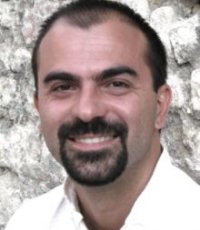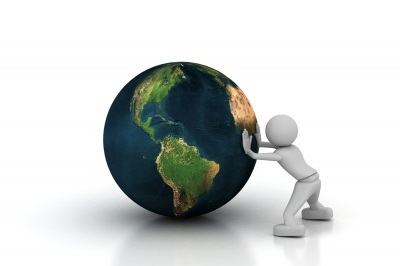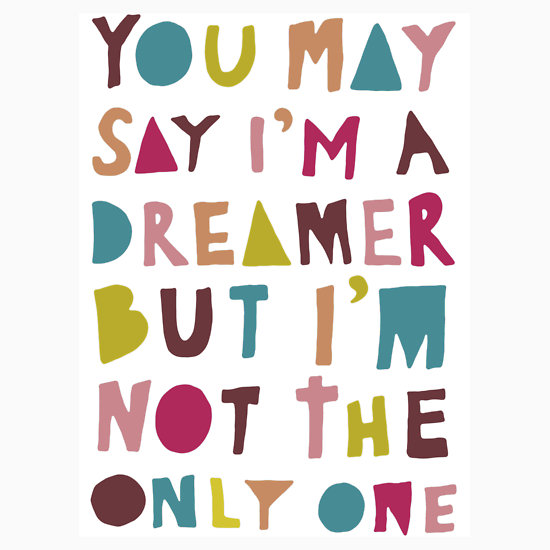Gross Domestic Problem-solving With Lorenzo Fioramonti
 Like most average Americans, I’ve always thought of GDP as a measure of success: The higher our Gross Domestic Production the better our country was doing. After this week’s Awakin Call with Lorenzo Fioramonti, I’ve realized that not only did I misunderstand GDP, but also this misunderstanding had huge political consequences that affected millions of lives globally.
Like most average Americans, I’ve always thought of GDP as a measure of success: The higher our Gross Domestic Production the better our country was doing. After this week’s Awakin Call with Lorenzo Fioramonti, I’ve realized that not only did I misunderstand GDP, but also this misunderstanding had huge political consequences that affected millions of lives globally.
Lorenzo Fioramonti is a professor of political economy in South Africa where he directs the Center for the Study of Governance Innovation. His research interests range from alternative economic paradigms to the governance of the commons to global political innovations with its new forms of supernational regionalism. He is Senior Fellow at the Centre for Social Investment of the University of Heidelberg and at the Hertie School of Governance (Germany) and Associate Fellow at the United Nations University. He's involved with the European Union, does a lot of work around well-being economics, and has written a number of very well-regarded books, the most recent of which are How Numbers Rule the World: The Use and Abuse of Statistics in Global Politics (Zed Books 2014) and Gross Domestic Problem: The Politics Behind the World’s Most Powerful Number (Zed Books 2013, recipient of the UP Best Book of the Year Award 2014).
Although I have a very limited understanding of Economics, I found it extremely easy to understand all the concepts and consequences that Professor Fioramonti discussed. He speaks with a simplicity and a passion that conveys a truth beyond words. Fiomonti offers not only a powerful critique of GDP, but also an alternative vision that can transform our world and ourselves as well.
Here are some excerpts of the powerful conversation with Professor Lorenzo Fioramonti:
The Politics of Measurement
“I have realized that the way in which we govern our societies or the way in which we run our companies, more and more even just simply engage with our communities and even organize our family life is organized around ways of measuring what we do. Measurement isn't just a number. Every time we measure, it's basically a way of organizing order, creating order and defining goals and targets and creating conditions to achieve those targets. The measurement is a very political process. “

“What happens is that I realized more and more that the way in which we measure reality effects the way in which we understand it and effects our behavior, effects our patterns of infraction. Therefore, if we want to change the world, if we want to reorganize ourselves, we may very well want to start from rethinking the numbers that we have given ourselves in order to organize the reality and dealing with it. In a way, it's a very political way of looking at numbers and realizing that they are the ultimate tools for inspecting our governance systems.”
“Measuring is never neutral. Measuring makes us able to see certain things and creates the conditions so that we can achieve those things. Whatever we measure affects what we do.”
Blindspots of GDP
“In the most specific case, what I've been writing a lot about is how GDP, the gross domestic product has become the fundamental order and principle of all our economies around the world...It is a measure that has specific characteristics and looks at certain things, doesn't look at other things. In this regard, it makes us blind towards different types of values and makes us overly obsess with other types of value.”
“GDP doesn't distinguish between transactions that really add value and transactions that take value away. For GDP, everything, every time money moves, it's a good thing for the economy.”
“The ideal society for GDP is a society in which we don't cook our own food, we don't look after ourselves, we are always sick because then we need a doctor and the doctor has to be paid and so on and so forth. We have this picture of the ideal GDP man. He's an obese man driving his car, stuck in a traffic jam, eating a hamburger and holding onto the phone while he talks to his lawyer who's actually taking care of his divorce. While he does that, he's about to have a car accident and a heart attack. All these things are good things for GDP…This is extremely dangerous. It's driving us into madness.”
“…the current model we have shows that GDP growth, unless it's really controlled and tamed and changed by a strong corrective policies by government leads to less well-being, more environmental destruction and more inequality. This is the trend we see around the world.”
“In a sense, GDP hasn't even managed to make us, if you will, happy and satisfied by giving us a continuous flow of goods and services because at the end of the day, those goods and services are always relative to what people around us have. The more we all have, the more we all want to compare ourselves to them and so on and so forth. In a sense, in both cases conceptually and measurement wise, GDP has failed us.”
Going Beyond GDP
“My conviction is that if we are to change the way in which we measure success, it will have a cascade effect upon society whereby our targets will change, our priorities will change, our values will be affected. The way in which we see the reality. It's a bit like seeing through to recognize that matrix. All of a sudden you see other things. You've changed as a result.”

“The post-GDP economy (or you can call it the well-being-based economy -- an economy which is driven by strong social ties) becomes an economy in which nature is a driver of prosperity in which nature is at the core of our idea of development in which nature has to be preserved, encouraged to improve and we need to reconnect with in order to be developed. It becomes a society in which generosity and reciprocity more than money transactions indicate a higher level of development. It becomes a society in which communities and families are more important than corporations because they produce well-being more than corporations and they actually have fewer negative externalities when actually when as we know, the negative externalities of many corporations outweigh the benefits and the gains of their profits. It becomes an economy in which fossil fuels disappear because fossil fuels make no sense from a well-being perspective because as I've said, the costs that they generate by orders of magnitude outweigh the benefits in terms of profits or even in terms of taxes. It becomes a society in which, if you will, all the things that we associate with civil society, right? The factory, non-profit which in a GDP language has become this residual, marginal, do-gooders but not really important bunch of guys, becomes actually the opposite. It becomes the real driver of prosperity.”
A Global Village or a Globe of Villages
“Nowadays, technologies allow us to be able to stay small and connect and still generate, if you will, a system which is in sync and can generate that level of output and services we need but without needing to build vertical infrastructure. It's a bit like nodes in a network. It's a bit like cells in a body.”
“Interestingly, Gandhi had already envisioned a system like this. He thought the ideal unit of governance was a village in which everybody participated in the running of the public good. At the same time, villages were able to communicate with one another as part of a bigger organism. That was the ideal system of governance for Gandhi. This idea has been around for some time. Now, for the first time in history, we are at a crossroads. We have a convergence of technologies, values, critiques and needs that together, gives an opportunity to really create what you can call the common-based economy and make it as efficient, actually more efficient than the conventional GDP economy.”
Be the Change 2.0
“It's a deep recognition that this system we have inherited is broken and that at some point, somebody has to do something to change this state of affairs. It's also the fact that I'm a father, I'm a husband. I have a beautiful family. I believe that we all have responsibility to change as much as we can in order to build a future which is better than the present in which we'll live.”

I'm fully aware of the fact that a strong, deep investigation is a pre-condition for change but certainly not a sufficient condition that defines the tough scientific work I've been doing for the past years… What we need to do is engage more and more in connecting the internal transformation process, which is a pre-condition to realize that something is wrong, and become flexible to the social transformation. Social transformation is not the sum of individual transformation. Social transformations require techniques. It requires tools. It requires negotiations. It requires rules and new systems and patterns of interaction that are often complicated and simply changing ourselves inside will not make us able to change the world.”
“In a sense, that's the real obstacle these day, is to really dive deeper in our own internal consciousness and be able to connect that with external change via the recognition that it's not just the sum of individual transformations but that social transformations requires a lot of work, painful work, a lot of negotiation, a lot of setting new rules , hence my fixation with GDP.”
“You May Say I’m A Dreamer…”
Even though, change makers like Lorenzo are swimming against the tide of Global Capitalism, one can find hope in the fact that they are not the only ones.
“I'm reminded we're not alone and maybe we're not even a minority. We're just not vocal or loud enough or maybe we're just getting more and more organized as we speak and our power, our capacity to change things is just increasing. Every time we create these connections like this call today.”

“Maybe, looking back one day, we're going to see this as a little moment in which things were coming like we're about to change. I believe that the people behind us, the generations like the Martin Luther Kings, the civil rights movements, the Apartheid movements of the past never knew when the change was coming. That kept going, kept going, kept going. At some point, change happened but they didn't have the crystal ball. Now, I think that we're motivated by the same recognition and if you will, also this spiritual peace that comes with that, that we're doing the right thing. That gives me a lot of peace, gives me a lot of sense of wholeness. This is what humanity is supposed to do.”
I agree with Lorenzo that this is “what humanity is supposed to do,” so keep going, keep going, keep going, Changemakers and Dreamers.
Posted by Kozo Hattori on Jan 30, 2016

